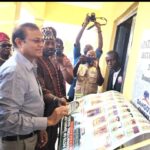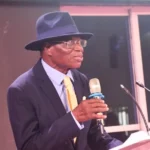Army arrests 43 suspected oil thieves in 3 states
Arrest By Desmond Ejibas Troops of the Nigerian Army’s 6 Division have apprehended 43 suspected oil thieves during a coordinated raid on illegal artisanal refineries across Bayelsa, Delta and Rivers states. Spokesman for the division, Lt.-Col. Danjuma Danjuma, disclosed this to journalists in Port Harcourt on Sunday, noting that 14 artisanalContinue Reading





















